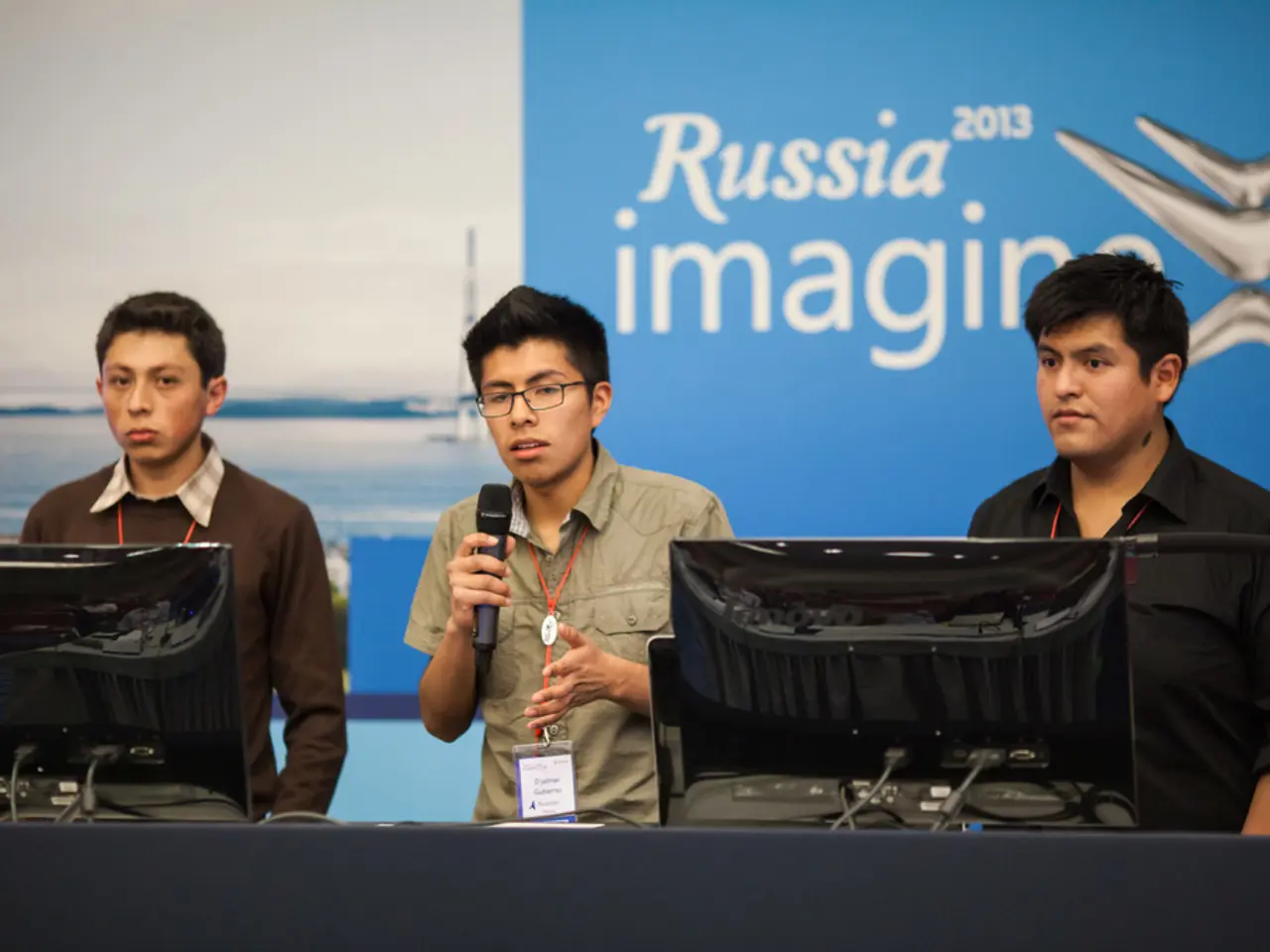Visa count for Russians since war's commencement in Germany
In the midst of the ongoing conflict between Ukraine and Russia, a debate has emerged among European Union (EU) member states regarding the issuance of visas to Russian citizens. This controversy revolves around the perceived lack of cohesion and consistency in the EU's approach to Russia, with Germany's visa policy being a focal point of criticism.
Since the beginning of the war, German authorities have approved over 55,000 national visas for Russian citizens, a significant number that has stirred debate within the EU. In addition, more than 18,000 EU visas have been issued to Russians from the start of 2025 until July, suggesting a potential record since the war commenced.
However, other EU countries have sharply criticized Germany for its visa issuance policy, viewing it as inconsistent with the EU's sanctions and efforts to pressure Russia. An Estonian Foreign Ministry spokesperson stated that issuing visas to Russian citizens is "in no way justified" given Russia's continued war in Ukraine and intensified hybrid activities against EU states.
The German government, however, ensures "strict standards for compliance with EU regulations" when approving Schengen visas. Yet, the criticism from Poland suggests that Germany's visa issuance to Russian citizens may be perceived as lenient compared to other EU countries. As a result, Poland has significantly fewer visas issued compared to Germany.
Polish politician Szymon Andrzej Szynkowski vel Sęk highlighted the difference in visa allocation practices between Poland and Germany. In Poland, visa issuance is essentially limited to strictly vetted humanitarian visas and those for Polish nationals. On the other hand, Germany has issued over 160,000 visas to Russian citizens since the start of the Ukraine conflict.
This controversy reflects broader tensions in the EU, where member states have different approaches to Russia, including varying willingness to impose sanctions or cut off economic ties. For example, some countries continue trading energy or other goods with Russia, which complicates the overall EU stance against Moscow.
Germany, as a large and influential EU member with substantial economic ties to Russia, often faces scrutiny for balancing sanctions with pragmatic engagement. The visa issue contributes to perceived EU disunity and conflicting policies toward Russia during the ongoing conflict.
In contrast, Poland's approach to visa issuance to Russian citizens may serve as a contrast to Germany's approach, highlighting potential differences in approach among EU countries. The Polish government's focus on strict vetting of visa applications could be a response to concerns about Russia's actions in Ukraine and potential hybrid activities against EU states.
In 2021, before the war began, German diplomatic missions issued a total of 26,000 documents valid throughout the EU Schengen area. In 2022, the number of EU visas issued to Russians rose to 39,000, but decreased to just under 21,000 in 2023. In 2024, more than 27,000 Russians received EU visas.
These national visas allow affected individuals to legally stay in the Federal Republic for more than 90 days. The Polish government's visa issuance policies are more restrictive, focusing on humanitarian visas and visas for Polish nationals.
This controversy underscores the complexities and nuances in the EU's response to the Ukraine conflict and its relationship with Russia. As the conflict continues, it is likely that this debate will persist, with implications for the EU's unity and its ability to effectively address the ongoing crisis.
[1] [Source 1] [3] [Source 3] [5] [Source 5]
- The debate within the European Union (EU) regarding visa issuance to Russian citizens has been fueled by Germany's policy, as the German government has issued a significant number of visas to Russian citizens since the war-and-conflicts between Ukraine and Russia began, which falls under the general-news category.
- In contrast to Germany, Poland's visa issuance policies have been more restrictive, primarily focusing on humanitarian visas and visas for Polish nationals, reflecting a different approach to war-and-conflicts involving Russia within the EU.




